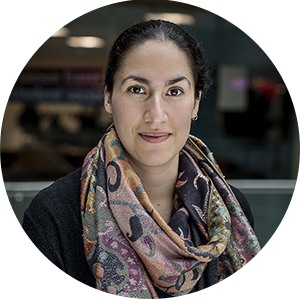About This Course
Data science skills, including computational thinking (problem solving) and data analysis, are becoming important for students to learn in order to be competitive in the workforce.
This course provides you the tools to bring data science literacy into your Grades 5-12 classroom(s) across all subject areas. You don’t need to be a computer programmer to enroll.
You'll learn:
- How to teach your students the “how’s” and “why’s” of data analysis.
- How to use Callysto’s learning modules in your classroom.
- How to run Python programming code to create data visualizations (like graphs).
- How to incorporate a data science exercise into your classroom.
Course Outline:
- Module: What is Data Science?
- Unit 1: Introduction.
- Unit 2: The Value of Data Science.
- Unit 3: Data Science and Critical Thinking.
- Unit 4: Framing a Data Science Question.
- Module: Data.
- Unit 1: Data for a Better Worldview.
- Unit 2: Data Fundamentals.
- Unit 3: Data Sources.
- Unit 4: Data Quality.
- Unit 5: Getting Started with Data Science Tools.
- Module: Using Python for Data Science.
- Unit 1: Creating Data Structures.
- Unit 2a (Optional): Working with Python Libraries.
- Unit 2: Importing Data Sets.
- Unit 3: Working with DataFrames.
- Unit 4: Cleaning and Filtering Data Sets.
- Unit 5: Working with Text Data.
- Module: Creating Data Visualizations with Jupyter Notebooks.
- Unit 1: Data Visualization Basics.
- Unit 1a (Optional): Advanced Data Visualizations.
- Unit 2: Choosing the Right Type of Visualization for your Data.
- Unit 3: Data Visualization Design.
- Unit 4: Python Libraries for Data Visualizations.
- Module: Analyzing and Interpreting Data.
- Unit 1: Introduction.
- Unit 2: Identifying Trends in Data.
- Unit 3: Describing Trends.
- Unit 4: Critical Interpretation.
- Unit 5: Basic Statistics.
- Unit 6: Critical Analysis of Software Output.
- Final Project.
Callysto experts are also on-hand to support you throughout the course. Email us at contact@callysto.ca if you have questions.
About Callysto
Callysto is a free, online learning tool that helps students and teachers learn and apply in-demand data science skills including data analysis, visualization, coding, and computational thinking. The Callysto program is facilitated by the non-profit organizations Cybera and the Pacific Institute for the Mathematical Sciences. It is funded under the national CanCode program.
Course Team
Laura Gutierrez-Funderburk
Laura Gutierrez Funderburk started working for the Callysto Project while still an undergraduate student at Simon Fraser University (SFU). She has developed Jupyter notebooks and Python programming language for students in Grades 9-12 (her favourite notebook contains a simulation of two players engaging in an unfair dice game.) She is very experienced in research, conference organization, and facilitating learning experiences for people who are in different stages of their careers. Her work at SFU has earned her a Terry Fox Gold Medal. “I like to share my enthusiasm for coding, and hope that the events we organize for students will inspire them down the road to become developers.”
David Hay
David has undergraduate degrees in science and education, and a master’s degree in education. He is currently working full-time as a teacher at Elk Island Public Schools, where he has been a Grade 6 teacher, an educational technology consultant, and a high school physics teacher.
Michael Lamoureux
Michael Lamoureux is a Professor of Mathematics at the University of Calgary who serves as the Innovation Coordinator of PIMS. Lamoureux has previously served as Chair of the Department of Mathematics and Statistics at the University of Calgary. Lamoureux has an active research program at the interface of harmonic analysis, wave propagation, and numerical methods with applications to problems in geoscience. Courses in complex variables and industrial mathematics leveraging Jupyter have been developed and delivered by Lamoureux. Lamoureux is also the lead author of an e-book on Jupyter and the platform’s usage in teaching and research.
Byron Chu
Byron has a PhD in biochemistry, and is a certified project manager. In his current role, as well as project managing, he also works with data, and delivers technology training to Albertans (and Canadians) of all ages. His proudest achievement at Cybera (so far) has been working with Callysto, and introducing new technologies and problem-solving approaches to Grades 5-12 teachers and students. If he's not at his desk, you will find him running or spending time with his family.





